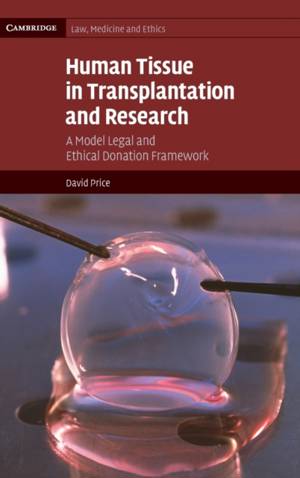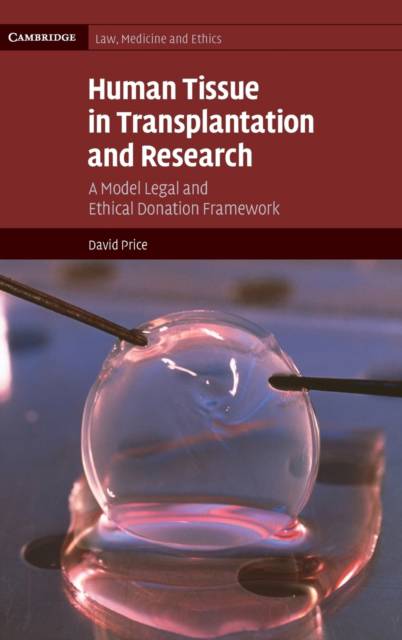
- Afhalen na 1 uur in een winkel met voorraad
- Gratis thuislevering in België vanaf € 30
- Ruim aanbod met 7 miljoen producten
- Afhalen na 1 uur in een winkel met voorraad
- Gratis thuislevering in België vanaf € 30
- Ruim aanbod met 7 miljoen producten
Zoeken
Human Tissue in Transplantation and Research
A Model Legal and Ethical Donation Framework
David Price
€ 187,45
+ 374 punten
Uitvoering
Omschrijving
Deficiencies and shortfalls in the supply of human organs for transplantation and human tissue for research generate policy dilemmas across the world and have often given rise to major and deleterious controversies, such as those relating to organ and tissue retention practices following post-mortem examination. They also create an environment in which illegitimate commercial activities flourish. At the same time, patients are denied the therapy they desperately require and researchers are impeded from carrying out vital work into the causes of, and efficacious treatments for, major illnesses and diseases. David Price sets out a clear and integrated legal and policy framework which emanates from the tissue source but protects the interests of donors and relevant professionals through tailored property entitlements, but without presupposing rights to trade in 'original' materials.
Specificaties
Betrokkenen
- Auteur(s):
- Uitgeverij:
Inhoud
- Aantal bladzijden:
- 328
- Taal:
- Engels
- Reeks:
- Reeksnummer:
- nr. 10
Eigenschappen
- Productcode (EAN):
- 9780521883023
- Verschijningsdatum:
- 17/12/2009
- Uitvoering:
- Hardcover
- Formaat:
- Genaaid
- Afmetingen:
- 150 mm x 229 mm
- Gewicht:
- 635 g

Alleen bij Standaard Boekhandel
+ 374 punten op je klantenkaart van Standaard Boekhandel
Beoordelingen
We publiceren alleen reviews die voldoen aan de voorwaarden voor reviews. Bekijk onze voorwaarden voor reviews.







